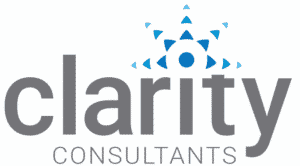
Integrating advanced learning technologies has become vital for organizations looking to stay competitive. Traditional classroom-based training often falls short of meeting the diverse needs of a modern workforce. Instead, Learning Management Systems (LMS) and Learning Experience Platforms (LXP) are stepping up, transforming how employees engage with training resources and acquire new skills. Let’s take a closer look at the latest learning technology trends and how these advanced platforms are shaping the future of corporate training.
The Shift from LMS to LXP: A Comparative Look
Learning Management Systems (LMS) have long been the backbone of corporate training programs. Learning Management Systems (LMS) are designed to manage, track, and deliver structured training content, ensuring employees meet compliance requirements and skill development goals. However, as the demand for personalized and flexible learning experiences grows, organizations are exploring newer solutions like Learning Experience Platforms (LXP). Understanding the critical differences between LMS vs. LXP is crucial when deciding which solution aligns with your business objectives.While an LMS focuses on administrative efficiency and compliance, an LXP prioritizes user engagement by curating learning content from both formal and informal sources. LXPs offer a more learner-centric approach, allowing employees to take control of their development through AI-driven recommendations and self-directed learning paths. These advanced learning platforms empower individuals to acquire new skills in a more personalized manner, promoting continuous growth beyond the traditional classroom setting.
The Role of Advanced Learning Platforms in Corporate Growth
As organizations strive to promote a culture of continuous learning, adopting advanced learning platforms is becoming more than just an option—it’s a necessity. These platforms go beyond the capabilities of conventional LMS, incorporating AI and machine learning to personalize the learning journey for each user. This tailored approach increases engagement and ensures that training aligns with individual career goals and organizational needs.Moreover, advanced platforms increasingly support microlearning, social learning, and mobile-friendly content delivery, catering to the preferences of today’s diverse, remote, and hybrid workforces. These learning technology trends allow employees to access the training they need, when and where they need it, breaking the confines of the classroom and expanding learning opportunities across the globe.
The Future of Learning: Integration and Innovation
Looking ahead, the future of corporate training lies in the seamless integration of various learning technologies. As the gap between LMS vs. LXP narrows, the real potential of these platforms will be realized through their ability to integrate with other HR systems and performance management tools. This interconnected approach will enable organizations to measure the impact of learning more effectively, providing valuable insights into how training contributes to broader business objectives.Additionally, emerging technologies such as augmented reality (AR), virtual reality (VR), and gamification are becoming integral to advanced learning platforms. These innovations offer immersive, interactive learning experiences that engage employees on a deeper level, making training more memorable and impactful.
Organizations must remain educated on the latest advancements in LMS, LXP, and other cutting-edge platforms as learning technology progresses. By leveraging the unique strengths of these systems and adopting a forward-thinking approach, organizations can cultivate a skilled, adaptable workforce prepared to meet future challenges. Moving beyond the classroom entails more than just embracing technology; it involves nurturing a culture of lifelong learning and providing employees with the resources they need to develop new skills and grow.

